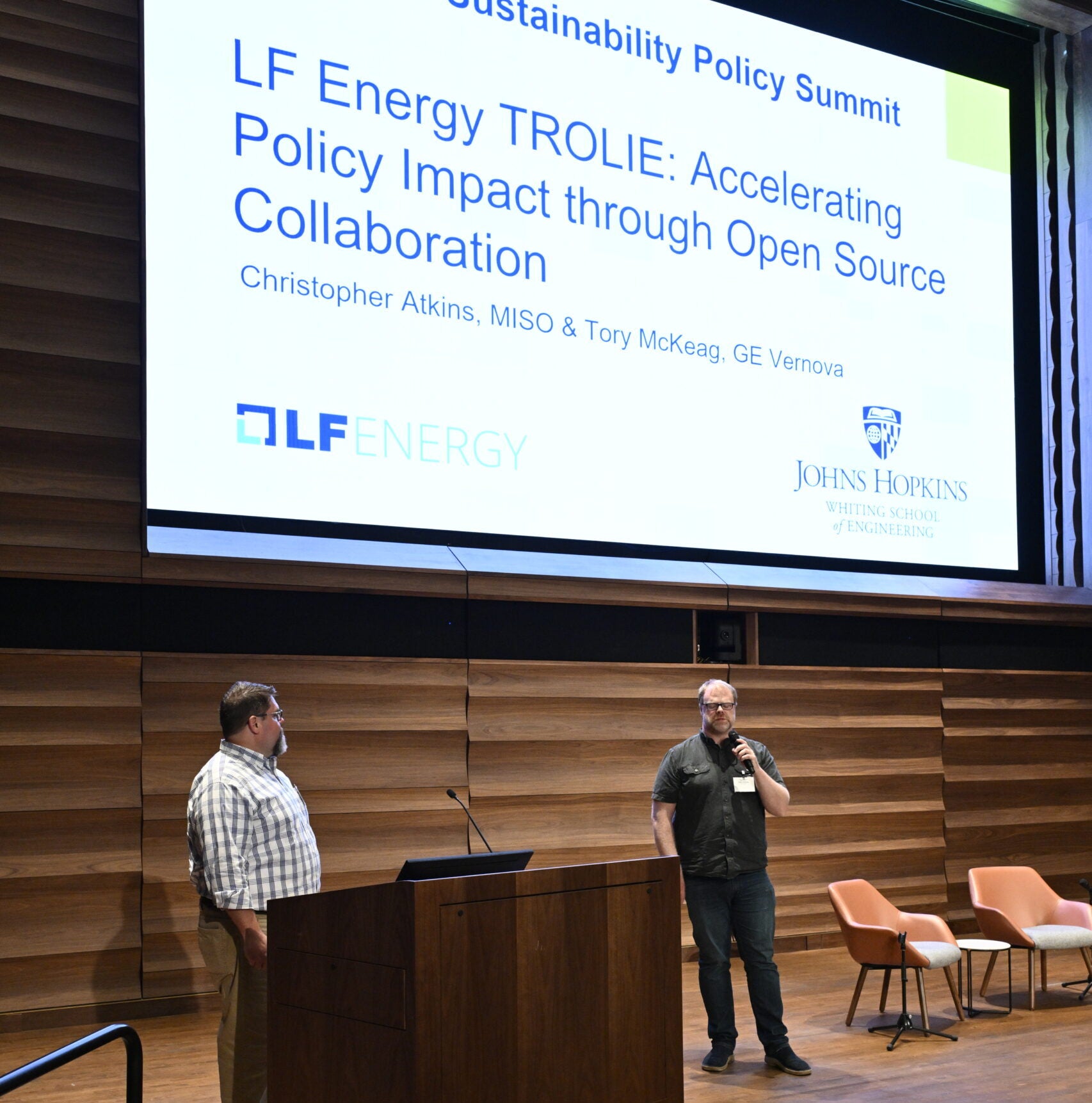Open Sustainability Policy Summit Recap and Video: LF Energy TROLIE: Accelerating Policy Impact through Open Source Collaboration
At the Open Sustainability Policy Summit 2024, Tory McKeag of GE Vernova and Christopher Atkins of MISO shared insights on the LF Energy TROLIE project, a collaborative initiative aimed at enhancing the transparency and efficiency of the energy grid through open source solutions (video follows below). Here are the key takeaways from their session:
1. Understanding LF Energy TROLIE TROLIE, short for Transmission Ratings and Operating Limits Information Exchange, is an open source project designed to improve data sharing and interoperability among energy grid operators. The initiative focuses on creating a standardized API for line ratings, which are critical for ensuring the reliability and efficiency of electricity markets.
2. Addressing Industry Challenges The energy grid is managed by a complex network of entities, each with its own systems and protocols. This fragmentation poses significant challenges for data sharing, such as differences in asset naming, unit measurements, and cybersecurity concerns. The TROLIE project aims to overcome these barriers by providing a common platform for exchanging line rating data, thereby enhancing coordination and reliability.
3. The Importance of Open Source Collaboration One of the project’s primary goals is to develop an open API specification that all stakeholders can use. By leveraging open source principles, TROLIE fosters a collaborative environment where utilities, vendors, and grid operators can work together to solve common problems. This approach not only accelerates the implementation of new solutions but also ensures that they are robust and widely adopted.
4. Benefits of the TROLIE Project The open source nature of TROLIE offers numerous benefits:
- Interoperability: Ensures seamless communication between different systems and vendors.
- Transparency: Enhances the visibility of line ratings, leading to more informed decision-making.
- Efficiency: Streamlines processes and reduces the time needed to implement new solutions.
- Innovation: Encourages the development of new tools and technologies by providing a shared foundation.
5. Future Directions and Aspirations Looking ahead, the TROLIE team envisions expanding the project’s scope to include more comprehensive data sharing and integration capabilities. They aim to create a sustainable ecosystem where open source solutions drive continuous improvement in grid operations. The project has already shown promising results, with significant interest and engagement from various stakeholders, and it continues to evolve as a vital component of the energy sector’s digital transformation.
Learn more about TROLIE at https://lfenergy.org/projects/trolie/.
